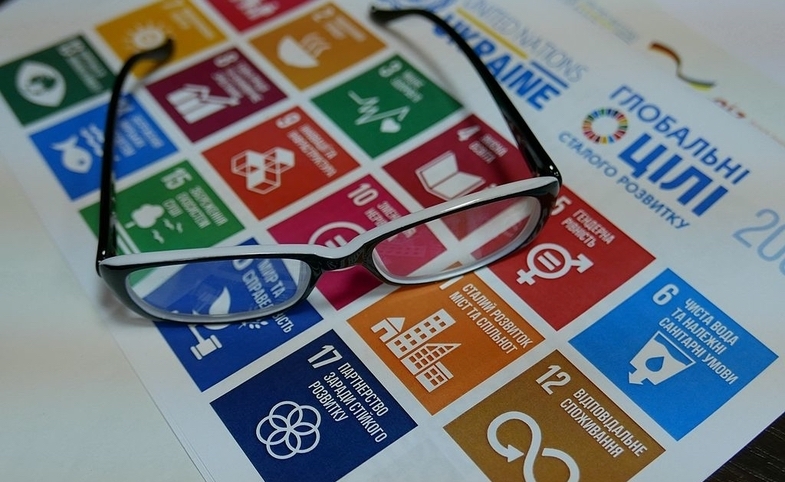Cristina Gallach is the UN Under-Secretary-General for Communications and Public Information. Before joining the UN, Gallach served as Head of the Public Relations Unit in the Council of the European Union, Directorate...
KEEP READINGThe CPD Blog is intended to stimulate dialog among scholars and practitioners from around the world in the public diplomacy sphere. The opinions represented here are the authors' own and do not necessarily reflect CPD's views. For blogger guidelines, click here.

SDGs Can Be a Test for European Public-Private Partnerships
After last week’s UN General Assembly, a multitude of planned events in EU countries and in Brussels, including a European Commission Multi-Stakeholder Platform, will keep the spotlight on the UN’s 2030 Agenda and its Sustainable Development Goals (SDGs).
The ambition level for 2030—only twelve years ahead—is high. Even Sweden has concluded that more than 75% of non-development cooperation targets still require considerable work. The 17 UN SDG goals and 169 targets are obviously the main aims, around which different public and private actors and stakeholders converge.
Understanding Corporate Counterparts
National ministries of foreign affairs and Federica Mogherini’s external action machinery should welcome the somewhat unwieldy SDG saga as an opportunity for diplomatic innovation.
The fabric of tomorrow’s diplomacy will increasingly be made up of public/private policy networks, and it is time for Europe’s diplomats to invest in their relationships with the business community.
The SDGs are a perfect experiment to test Mogherini’s promise to "deepen partnerships" with the private sector through "more innovative forms of engagement," as the 2016 EU Global Strategy puts it.
EU officials need a better understanding of their corporate counterparts. The cultural clash between public and private sectors should not be underestimated. Without much counseling available in politics and international relations, diplomats should make sure they get to the bottom of what makes their corporate counterparts tick.
SDG-oriented diplomatic collaboration with the private sector should not be considered exceptional but should be viewed as a necessary innovation in diplomacy in accordance with broader patterns of change.
Diplomats and civil servants are a different species from business people; their worldviews diverge and so do the pace and space of their daily routines. The new orthodoxy is that old-style governmental "policy consultations" have turned into multi-stakeholder partnerships.
They are the bread and butter of the debate on SDGs and are a window for NGOs to influence the authorities. However, the restless business community has a different understanding.
Commercially Viable SDGs
European and EU diplomats should never lose sight of the main drivers of the corporate sector. Companies have a sui generis take on strategic action: their business models are about profit-making, and sustainability aims are not supposed to stand in the way of commercial objectives.
The 2016-17 Volkswagen scandal shows that short-term demands can erode business ethics at the highest levels of management. SDG policies that depend on collaboration by concrete companies have the best chance of becoming successful if they are commercially viable – which is not a typical concern of the public sector.
Nevertheless, there are success stories too. Some of the 2016 climate action campaigns, such as the "Marrakech Partnership for Global Climate Action" and the "High-Level Climate Champions", show that successful bridging of the public/private divide is feasible.
From Consumers to (Co-)Producers
Diplomacy is all about relationships, and the SDG debate illustrates the importance of diplomats and civil servants coming out of their public sector comfort zone. In a growing number of policy areas, they need to figure out how to improve their working relationship with private stakeholders.
Private participants in the diplomatic game are no longer the targets or consumers of government messages and policies, but partners and co-producers of diplomatic outcomes.
SDG-oriented diplomatic collaboration with the private sector should not be considered exceptional but should be viewed as a necessary innovation in diplomacy in accordance with broader patterns of change.
There is nothing traditional about the diplomatic process on sustainability issues. The "interface cultures" of SDG networks are very different from the hierarchical environments that are historically more familiar to diplomats and civil servants. New rules of engagement are replacing traditional standards of diplomatic behavior.
National diplomats see that early 21st-century diplomacy is becoming less state-based and that they are no longer at the centre of the public/private networks in which they participate.
European governments and EU institutions, therefore, would benefit from a better understanding of what makes the corporate sector tick, and they need to engage more with their business counterparts.
CEOs Coming to the Rescue in a Post-Fact World
Interestingly, changing political winds, not just in the United States but also in Europe, offer opportunities for a public/private meeting of minds. In the present "post-fact" era, the very idea of SDGs and international co-operation is itself challenged by populist movements.
Corporate narratives can complement EU and member states’ public diplomacy. It helps when companies explain complex sustainability issues to the public. It enhances the legitimacy of experts when leading business people are forthright in speaking out against the politically-motivated dismissal of facts that are presented as inconvenient opinions of the elites.
A recent development is that we see CEOs raising their voice in support of sound arguments and against populist policies which damage business, such as "SDG advocates" Paul Polman (Unilever) in Europe and Jack Ma (Alibaba Group) in Asia. No longer unlikely bedfellows, business people and civil servants are becoming more closely connected.
Note from the CPD Blog Manager: This piece originally appeared on Euractiv.
Visit CPD's Online Library
Explore CPD's vast online database featuring the latest books, articles, speeches and information on international organizations dedicated to public diplomacy.
POPULAR ARTICLES
-
January 29
-
January 20
-
January 28
-
January 2
-
January 8
Join the Conversation
Interested in contributing to the CPD Blog? We welcome your posts. Read our guidelines and find out how you can submit blogs and photo essays >.














